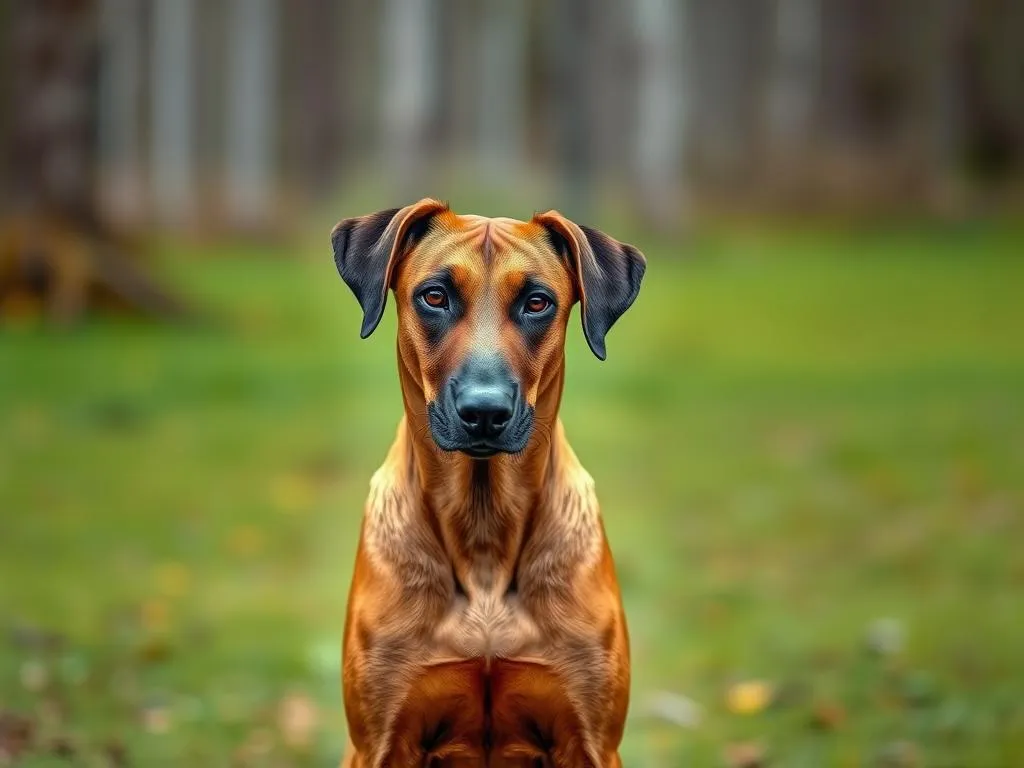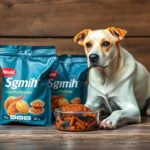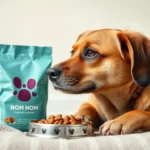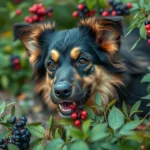
Introduction
Rhodesian Ridgebacks are remarkable dogs known for their strong physique, loyalty, and versatility. Originating from Southern Africa, these dogs were originally bred to hunt lions, showcasing their endurance and strength. Given their active nature and unique characteristics, proper nutrition is paramount for their health and longevity. In this guide, we will explore the best dog foods for Rhodesian Ridgebacks, focusing on their specific nutritional needs and dietary preferences.
Understanding Rhodesian Ridgebacks
Breed Characteristics
Rhodesian Ridgebacks are large, athletic dogs, typically weighing between 70 to 85 pounds for males and 50 to 70 pounds for females. They stand about 24 to 27 inches tall at the shoulder. Their short coat requires minimal grooming but is susceptible to sunburn, making it essential to provide adequate shelter and care.
These dogs are known for their moderate to high energy levels, requiring regular exercise and mental stimulation to stay healthy and happy. They thrive in active households and excel in various activities, including running, hiking, and agility training.
However, like many breeds, Rhodesian Ridgebacks can be predisposed to certain health issues, including hip dysplasia, skin allergies, and certain types of cancer. Understanding these risks can help owners choose the right food to support their dog’s health.
Nutritional Needs
When it comes to nutrition, Rhodesian Ridgebacks have specific dietary requirements influenced by their age, size, and activity level. A balanced diet should include:
- High-quality protein to support muscle development and overall health.
- Healthy fats for energy and skin health.
- Digestible carbohydrates to provide energy and support digestive health.
- Essential vitamins and minerals to promote overall well-being.
Puppies, adults, and senior Rhodesian Ridgebacks will have different nutritional needs, making it crucial for owners to select appropriate dog food that caters to their life stage.
Key Nutritional Components for Rhodesian Ridgebacks
Protein Sources
High-quality protein is vital for the health of Rhodesian Ridgebacks. Protein aids in muscle development, tissue repair, and overall growth. The ideal protein percentage for this breed ranges between 22% to 30%, depending on their age and activity level. Good sources of protein include:
- Chicken
- Beef
- Fish
- Lamb
These protein sources not only provide essential amino acids but also contribute to a shiny coat and healthy skin.
Fats and Omega Fatty Acids
Fats play a significant role in a dog’s diet, providing a concentrated source of energy and supporting cell structure and function. Omega fatty acids, in particular, are essential for maintaining healthy skin and a shiny coat. The best sources of omega fatty acids include:
- Fish oil
- Flaxseed oil
- Chicken fat
Aim for a fat content of about 8% to 18% in your Rhodesian Ridgeback’s diet, ensuring they receive adequate energy without excess weight gain.
Carbohydrates
While dogs are primarily carnivorous, digestible carbohydrates can provide a quick source of energy. It’s essential to choose high-quality, easily digestible carbohydrate sources, such as:
- Sweet potatoes
- Brown rice
- Oats
- Peas
These ingredients can help support healthy digestion and provide sustained energy for active Rhodesian Ridgebacks.
Vitamins and Minerals
A balanced diet must also include essential vitamins and minerals. These nutrients support various bodily functions, such as immune system health, bone development, and overall vitality. Key vitamins and minerals for Rhodesian Ridgebacks include:
- Vitamin A for vision and immune function
- Vitamin E as an antioxidant
- Calcium and phosphorus for strong bones
- Omega-3 and Omega-6 fatty acids for skin and coat health
Choosing a dog food that lists these nutrients will help ensure your Rhodesian Ridgeback remains healthy and active.
Best Dog Foods for Rhodesian Ridgebacks
Top Commercial Dog Food Brands
When it comes to selecting the best dog foods for Rhodesian Ridgebacks, several reputable brands stand out for their high-quality ingredients and nutritional profiles. Here are some recommended brands:
- Orijen: Known for its high protein content and fresh, regional ingredients, Orijen is an excellent choice for active Rhodesian Ridgebacks.
- Blue Buffalo: Offers a variety of formulas, including grain-free and high-protein options, tailored for large breeds.
- Wellness Core: This brand focuses on high-protein, grain-free recipes that are perfect for maintaining the energy levels of active dogs.
- Royal Canin: Provides breed-specific formulas, ensuring that the nutritional needs of Rhodesian Ridgebacks are met effectively.
- Taste of the Wild: Offers high-quality, protein-rich formulas with real meat and natural ingredients, suitable for active dogs.
Grain-Free vs. Grain-Inclusive Options
The debate between grain-free and grain-inclusive dog foods is ongoing. While some dogs thrive on grain-free diets, others may benefit from the fiber and nutrients found in grains. Here are some pros and cons of each:
Grain-Free:
– Pros: May alleviate food sensitivities in some dogs; often higher in protein.
– Cons: Some grain-free diets have been linked to heart issues in certain breeds; not suitable for all dogs.
Grain-Inclusive:
– Pros: Can provide beneficial fiber; often includes wholesome grains like brown rice and oats.
– Cons: May not be suitable for dogs with specific grain allergies.
For Rhodesian Ridgebacks, assessing their specific needs and any potential allergies is crucial when deciding between grain-free and grain-inclusive options.
Raw and Home-Cooked Diets
Some owners opt for raw or home-cooked diets for their dogs, believing it to be more natural. While these diets can provide benefits, they also come with risks.
Benefits of Raw Feeding:
– Fresh, whole ingredients that may be more appealing to dogs.
– Potential improvements in coat condition and energy levels.
Risks of Raw Feeding:
– Nutritional imbalances if not properly formulated.
– Increased risk of bacterial contamination.
For those interested in home-cooked meals, it’s essential to consult with a veterinarian or canine nutritionist to ensure the diet is balanced. Here are some basic recipes to consider:
- Chicken and Rice: Boil chicken breast and mix with brown rice and steamed vegetables like carrots and peas.
- Beef Stew: Cook lean beef with potatoes, carrots, and green beans, ensuring no seasoning harmful to dogs is added.
Factors to Consider When Choosing Dog Food
Age and Life Stage
Dietary needs vary significantly at different life stages. Puppies require higher protein and fat levels to support growth, while adult and senior dogs may need lower fat content to prevent obesity.
- Puppies: Look for foods labeled as suitable for large breed puppies, which are rich in protein and calcium.
- Adults: Choose high-quality adult formulas that maintain energy levels and support overall health.
- Seniors: Opt for food with joint support ingredients and lower calorie content to prevent weight gain.
Activity Level
Activity levels play a crucial role in determining the appropriate food. Active Rhodesian Ridgebacks may require higher protein and calorie content, while less active dogs can benefit from lower-calorie diets to maintain a healthy weight.
Specific Health Concerns
Some Rhodesian Ridgebacks may experience food sensitivities or allergies. When selecting a food, consider:
- Grain allergies: Choose grain-free options if your dog shows signs of sensitivity.
- Weight management: For overweight Ridgebacks, select low-calorie, high-fiber foods to help with weight loss while maintaining satiety.
Tips for Transitioning to a New Dog Food
Switching dog foods should be a gradual process to minimize digestive upset. Follow these steps for a successful transition:
- Start Slow: Begin by mixing a small amount of the new food with the old food.
- Gradually Increase: Over a week, slowly increase the proportion of the new food while decreasing the old.
- Monitor: Watch for any signs of digestive issues, such as diarrhea or vomiting.
Signs of a successful transition include normal stool consistency, increased energy, and a healthy appetite.
Common Mistakes to Avoid
Overfeeding and Portion Control
One of the most common mistakes dog owners make is overfeeding. Rhodesian Ridgebacks, due to their size, can easily gain weight if portions are not controlled. Always follow feeding guidelines based on your dog’s age and activity level.
Ignoring Ingredients and Labels
Many pet owners overlook the importance of reading ingredient labels. Ensure that the first ingredient is a high-quality protein source and that the food contains minimal fillers and artificial additives.
Not Consulting a Veterinarian
It’s crucial to consult a veterinarian or a canine nutritionist, especially if you notice any changes in your dog’s health or behavior. They can provide personalized recommendations based on your Rhodesian Ridgeback’s specific needs, including dietary adjustments or supplements.
Conclusion
A balanced diet tailored to the specific needs of Rhodesian Ridgebacks is essential for their overall health and well-being. By understanding their unique nutritional requirements and selecting the best dog foods for Rhodesian Ridgebacks, owners can ensure their furry companions thrive. Always consider consulting with a veterinarian for personalized dietary advice to meet your dog’s health needs.
FAQs
What is the best diet for a Rhodesian Ridgeback?
The best diet includes high-quality protein, healthy fats, digestible carbohydrates, and essential vitamins and minerals, tailored to their life stage and activity level.
Can Rhodesian Ridgebacks eat grains?
Yes, many Rhodesian Ridgebacks can eat grains. However, if your dog has a grain allergy or sensitivity, opt for grain-free options.
How much food should I feed my Rhodesian Ridgeback?
Feeding amounts depend on age, weight, and activity level. Always refer to the feeding guidelines on the dog food packaging and consult your veterinarian for personalized recommendations.
Are raw diets safe for Rhodesian Ridgebacks?
Raw diets can be safe but may pose risks if not properly balanced. Consult with a veterinarian to ensure nutritional adequacy and safety.
How can I tell if my dog is allergic to food?
Signs of food allergies include itching, skin irritations, gastrointestinal upset, and ear infections. If you suspect food allergies, consult a veterinarian for guidance.









